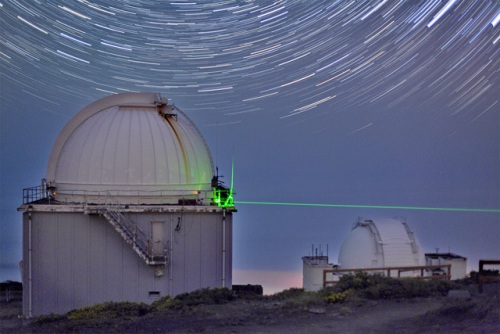A multi-institute research team, which also includes scientists from the Institute for Quantum Computing (IQC), has successfully teleported quantum data between the Canary Islands of La Palma and Tenerife, covering a record distance of 143 km over free space.
 One of the stations in the Canary Islands for quantum teleportation. (copyright- IQOQI-Vienna)
One of the stations in the Canary Islands for quantum teleportation. (copyright- IQOQI-Vienna)
The research team’s quantum teleportation of photons paves is a significant progress towards the realization of quantum communications through satellites. Quantum teleportation is essential for the realization of future technologies such as quantum communication and quantum computing..
Equipment and algorithms devised in the University of Waterloo played a crucial role in this research led by scientists at the Institute for Quantum Optics and Quantum Information. The research results have appeared in the Nature journal.
Quantum teleportation over a distance of 143 km is a significant achievement because that is approximate minimum distance between ground and orbiting satellites, opening up the opportunity for quantum teleportation between orbiting satellites and ground stations. This is the key objective in the work of Thomas Jennewein, an IQC faculty member and a part of the record-breaking experiment.
For the experiment, Jennewein devised the ‘coincidence algorithm,’ which synchronized and made measurements of photon transfer between the two locations in the Canary Islands. The alignment of the high-precision clocks required to make measurement of the photon teleportation was done within a nanosecond. Such high accuracy will be essential to develop satellite-based quantum communications networks.
A team of IQC research assistant professor Vadim Makarov and PhD student Elena Anisimova developed the ultrasensitive photon detectors that enabled the teleportation to take place in high fidelity in spite of some unclear air conditions.
Makarov informed that the next logical step is to go for teleportation between orbiting satellites and ground stations because the atmospheric disruption in space is comparatively lesser than that between Canary Islands.
Source: http://iqc.uwaterloo.ca